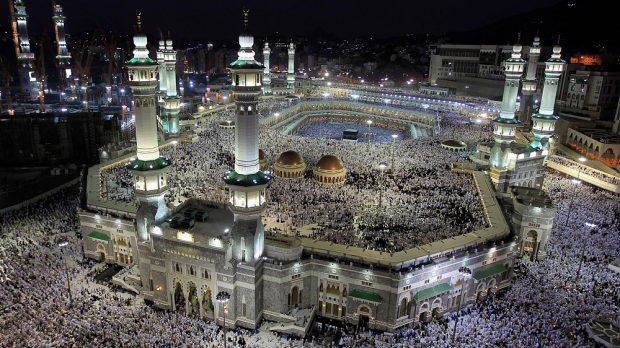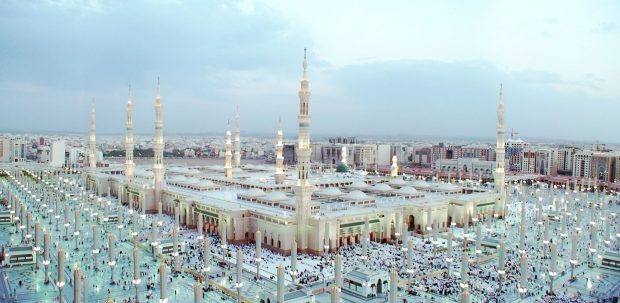Ramadan features in Grand Mosques suspended, restricted as world combats COVID-19

Grand Mosque in Makkah
By Nasir Yousoff
Contributor to AsiaN
Makkah: Taraweeh, the prayers performed by Muslims after Isha (evening) prayers in Ramadan, will be limited to the imam and a group of worshippers in the holy mosques in Makkah and Madinah, the General Presidency for the Affairs of the Two Holy Mosques has announced.
The five daily prayers and Taraweeh prayers will be performed only by presidency officials and sterilization workers during tRamadan, also known as Ramazan and Ramadhan.
Itikaf, the Ramadan ritual of staying in a mosque solely for the purpose of worship, meditation and supplications, will be suspended at the Grand Mosque in Makkah and the Prophet’s Mosque in Madinah throughout the month.
The open serving of iftar meals to break the fast will also be suspended in the bid to avoid large crowds at and around the mosques where thousands of worshippers congregate.
The decisions complement previous ones announced last month by the religious authority as part of the precautionary measures taken by Riyadh to mitigate the spread of coronavirus.
Ramadan, the ninth monthly on the lunar-based Islamic calendar, is revered by Muslims who abstain from eating any food, drinking any liquid, smoking and engaging in sexual activities from dawn until sunset. However, young children, the old, the sick and menstruating women are not obliged to fasten. Travelers have the authorization to delay their fast until they settle.

Prophet’s Mosque in Madinah
The start and end of the month is determined in many countries by the sighting of the moon. In some countries, scientific calculations are used. The discrepancies at times result in countries not starting or ending their fast on the same days.
This year, the month is expected to start on April 24.

























































